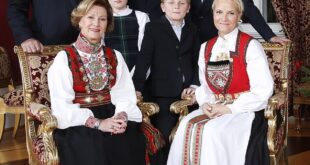From the end of 2021, all agreements underpinning the E Parcel Group will be terminated and all the traffic will be transferred to INTERCONNECT, International Post Corporation (IPC) announces today.
This transfer, initiated earlier this year, has already contributed to a significant increase in INTERCONNECT Premium volumes.
Holger Winklbauer, IPC Chief Executive Officer states: “EPG has been one of the IPC success stories of the past 25 years, contributing to important parcel growth for postal operators throughout the world. EPG consistently adapted to posts and customers’ needs and to e-commerce growth. Integration into INTERCONNECT, which is recognised today as the standard for cross-border postal e-commerce delivery, is a natural evolution. This is not the end of the story but the start of a new important step, aimed at further reinforcing postal competitiveness in the e-commerce delivery market.”
EPG was established in 1996 at the initiative of An Post, Danish Post, Deutsche Post, Posti, PostNL, Post Norway, Royal Mail, Swedish Post and Swiss Post. The E Parcel Group (EPG) progressively extended to 31 members throughout Europe. For 10 years, EPG also included USPS. EPG focused on providing a reliable quality of service for priority parcels through an integrated delivery network. The Group chose IPC to centrally manage its business plan, to create and deliver performance monitoring, payment reporting and to develop the first international Customer Service solution.
Liam O’Sullivan, IPC Chief Operations Officer commented: “EPG can be seen as a pioneering project or innovation hub for cross-border parcels. Quite several essential IPC services used today across the postal networks were initially developed for EPG. I would like to thank and congratulate the staff who worked in and for the EPG team at IPC, in particular Lorella Belotti, IPC Head of EPG, Reporting Services and Strategic Relations, as well as the EPG member posts’ representatives, for all their efforts over the years and for managing a successful transition to INTERCONNECT.”
EPG as an innovation hub
Several IPC services which contribute to enhanced quality of cross-border postal delivery and underpin today’s postal operations were initially developed for EPG, including:
The Global Customer Service System (GCSS) was initially launched as a Customer Service System for EPG in 1999. It is now deployed by over 190 posts worldwide as a user-friendly operational solution to connect postal customer service centres enabling swift resolution of consumers’ enquiries. INTERCONNECT, PRIME, UPU parcels and EMS items can be followed and investigated via GCSS.
The Easy Return Solution was launched for EPG in 2010 to provide e-retailers with a consumer-friendly return solution for e-commerce items. It is now part of the Common Return Platform, the return solution serving several international postal products including KPG, PRIME, EMS, UPU Parcels and INTERCONNECT.
INTERCONNECT: The end-to-end postal delivery network
INTERCONNECT is a unique undertaking of posts worldwide, joining forces to offer e-retailers and consumers reliable end-to-end cross-border postal delivery service, and a range of solutions that are crucial for the success of today’s e-commerce businesses. Through INTERCONNECT, participating posts are committed to receive and deliver items from each other according to jointly agreed very competitive standards for three service levels: Premium (tracked plus signature), Standard (tracked) and Economy (untracked). With the posts of Cyprus, Bulgaria and the United Arab Emirates recently joining, the total number of posts participating in INTERCONNECT currently stands at 34 posts. The Volume of tracked items being delivered through INTERCONNECT have increased considerably to reach over 10m items a month.
The EPG success story
All members valued EPG as a professionally managed and strong performing network. The main reasons for EPG success were the dedication to customers’ and business needs, the close cooperation of all members, the continuous improvement, responsiveness and the dedicated EPG Central Management at IPC.
Source link



